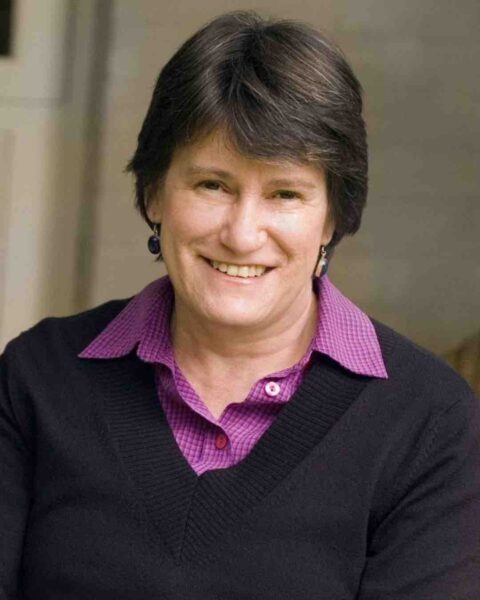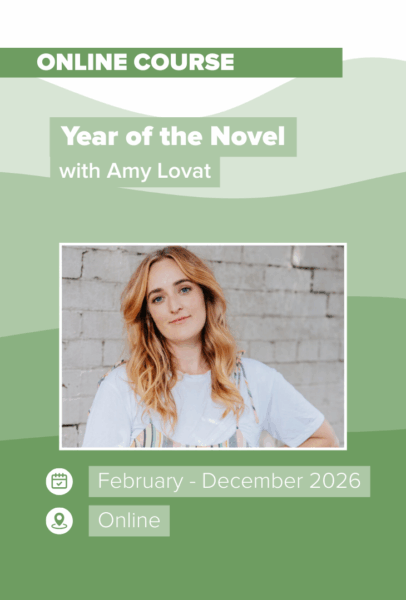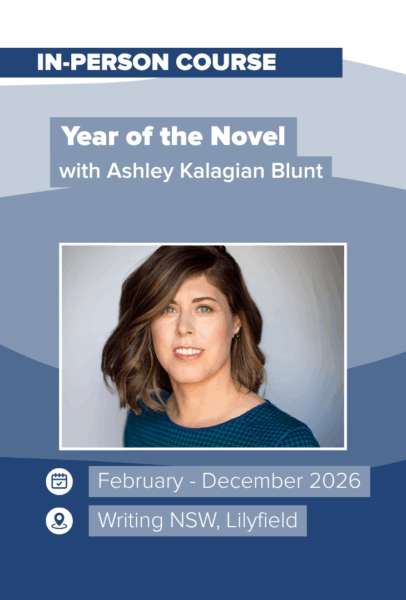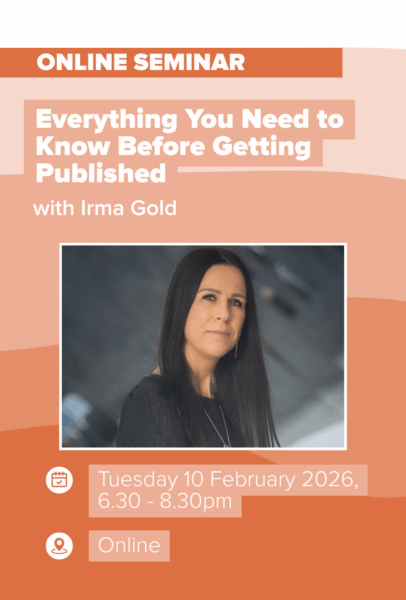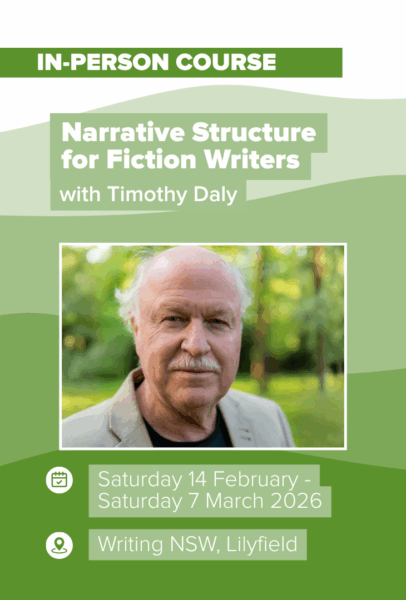The Art of Poetry
 Judith Beveridge
Judith Beveridge
6 x Tuesday evenings: 23, 30 May; 6, 20, 27 June; 4 July 2023, 6.30-9.30pm (skipping 13 June)
Full Price: $660
Member: $495
Conc Member: $430
This course is finished. Sign up for our waitlist here to find out when it’s running again. In the meantime, check out our list of current courses or sign up for our Newsbite weekly newsletter for updates.
This poetry writing course with Judith Beveridge takes place at Writing NSW, Sydney.
This six-week course with Judith Beveridge is open to all students interested in the craft of poetry. The main focus of the course is on developing the writing and critical skills of each student. This is done through a combination of prepared readings, lectures and critiquing workshops. A specific topic is covered each week and by the end of the course students should have a working knowledge of a variety of poetic forms, how to work with image and metaphor as well as rhythm, lineation, and sound. Students will be introduced to the work of a range of different poets. One of the root words for poetry is poesis – “making”. But what exactly “makes” poetry and how do poems work? By looking at a variety of poems students will uncover some of the issues surrounding the “making” of poetry and gain a fuller understanding and appreciation of poetry’s power.
Week-by-week Course Breakdown
Week 1: Introduction
What is poetry?
What is poetry for?
The Lyric: When we read a lyric poem, we give ourselves over to a process of becoming the poem: we enter its rhythm and sound structures, its flow of images. Lyric poetry can open up sacred spaces. By perceiving the unique quality of the present moment, a lyric poem can help us experience a moment of unique perception, when the transitory and the eternal, the earthly and the spiritual are reconciled. This workshop will provide examples of poems which work in this way and will provide exercises to help develop emotional intensity and resonance.
Week 2: The Art of the Image
The image is central to poetry. It can be used to evoke both drama and emotions and to inject sensory details into writing. We will look at the concept of showing through the image, rather than telling through statement. We will examine figurative imagery: similes and metaphors and how they can be employed to carry meaning and power.
Week 3: The Art of the Line
What distinguishes poetry from prose is the way in which the sounds of language are organised into lines. The line is often what distinguishes our experience of poetry as poetry. We will look at how to use the line and how to make line endings serve the poem. TS Eliot said that ‘no verse is free for the poet who wants to do a good job.’ In free verse, a poet can express emotions and thoughts by the way that the sentences move over the lines, and by shifting and stretching and changing the syntax
Week 4: The Art of Revision
In this lesson we will consider ways in which to successfully revise a poem, how to move a poem forwards. We will examine common problems that arise during writing: abstraction, sentimentality, over-writing, under-writing, vagueness, grammatical weakness.
Week 5: The Art of Sound
The English language is beautifully musical. Robert Frost called sound in poetry ‘the gold in the ore’. In this workshop we will examine the sonic properties of vowels and consonants and how to use them effectively to enhance the meaning of a poem and add dramatic and emotional depth. Poetry originally emerged out of song, chanting and dance, it uses patterns and repeating structures such as rhythm, assonance, alliteration, a recurrence of words and phrases to get its meaning across. We will look carefully at how to make the most of these sonic qualities and at how sounds can be used to add power and meaning to a poem.
Week 6: The Art of Form
Poetry is remarkable for the beauty of some of the designs and patterns that can be achieved through strict adherence to forms. We know that a poem’s form and content are interactive systems. Form without balanced content is hollow; content without form can be chaos. The poem is the form and the form is the poem. We need to ask how does the form of a poem relate to its overall impact? And why? Does form contribute to meaning? What is form exactly? We will look at the villanelle, the sonnet and the sestina as well as the prose poem.
Expected Learning Outcomes
Class members will:
- Take away with them a strong sense of the discipline and craft that goes into poetry writing.
- Improve their critical skills and ability to appreciate a wide range of poems.
- Gain insight into form, rhythm, imagery and structure.
This workshop takes place at Writing NSW in Sydney.
Participant Requirements
Participants need to have some prior knowledge of poetry. Pen and paper, laptop optional. Please read our FAQ before enrolling.
Participants in face to face courses must comply with any precautionary measures related to COVID-19 that Writing NSW puts in place.
If you are feeling unwell and experiencing any COVID-related symptoms on the day of the course, you must stay at home and contact us to let us know. As a participant in this course, you will be required to follow all COVID safety measures in place by Writing NSW to ensure the health and wellbeing of our community.
If you have questions about this course and/or COVID-safe guidelines, please contact us.
Reviews
‘Judith did an amazing job selecting the topics and ensuring that everyone – from beginner poets to published ones…It was well-paced and the balance between workshopping and theory was well maintained.’ – Natalie, 2022
‘…Judith was such a wonderful tutor – so knowledgeable and lovely…Her invaluable suggestions really helped me to revise and refine my poems so that they came out much stronger than when I first submitted them. I liked how the class was divided into two parts – a theoretical component (most fascinating!) and a workshopping/feedback component (which was extremely useful).’ – Paris, 2022
More from Writing NSW
Check out our full range of in-person writing courses in Sydney, our online writing courses and our feedback programs to see how we can help you on your writing journey. Find out about our grants and prizes, as well as writing groups across NSW, and sign up to our weekly newsletter for writing events, opportunities and giveaways.

